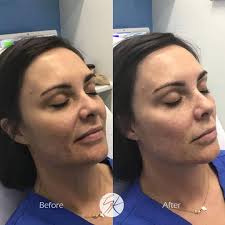
There are many treatment options available for nasal septum damage. In this article, we'll discuss surgical options, non-surgical methods, and side effects. We'll also discuss the options for antihistamines as well as whether surgery is an option. If you don't want to undergo invasive procedures, home treatment might be an option. You can consult a doctor if you're not sure which treatment is best for you.
Non-surgical therapies
The best way to treat a nasal septum defect is to see if you can find it. Some patients have no symptoms while others experience bleeding or scabbing. These symptoms may indicate that non-surgical treatments are the best options for you. Below are some of the common treatment options for nasal septum piercing.

There are many surgical options
This problem can be treated with surgical options, but not all options. These procedures are not ideal as they can cause infection or bleeding. You may need another surgery if the perforation does not close completely. Talk to your doctor if you are interested in a home treatment. Here are the pros and disadvantages of each type.
Side effects of surgery
When there is a nasal septum perforation, a person may experience various symptoms. One of the most common symptoms is nasal bleeding. But, if it is severe, it may cause blood loss or crusting of your mucous membrane. Chronic infections may also develop. Perforated septums may cause bleeding and crusting. This can make it difficult to breathe normally.
Antihistamines
The use of antihistamines for nasal septum per foration is not a viable home treatment for this condition. They may cause side effects, as well as preventing inflammation and irritation. Antihistamines can cause dryness and irritation, as well as a sore throat and a whistling sound.

Steroid sprays
There are two basic types of treatment for nasal septum perforation: surgical treatment and topical ointments. While both are intended to relieve the symptoms of the perforation, the latter is more permanent. Before starting any treatment, discuss your options and consult your doctor. Nasal ointments are a good way to keep the septum moist. They also regulate breathing. They may contain harmful ingredients.